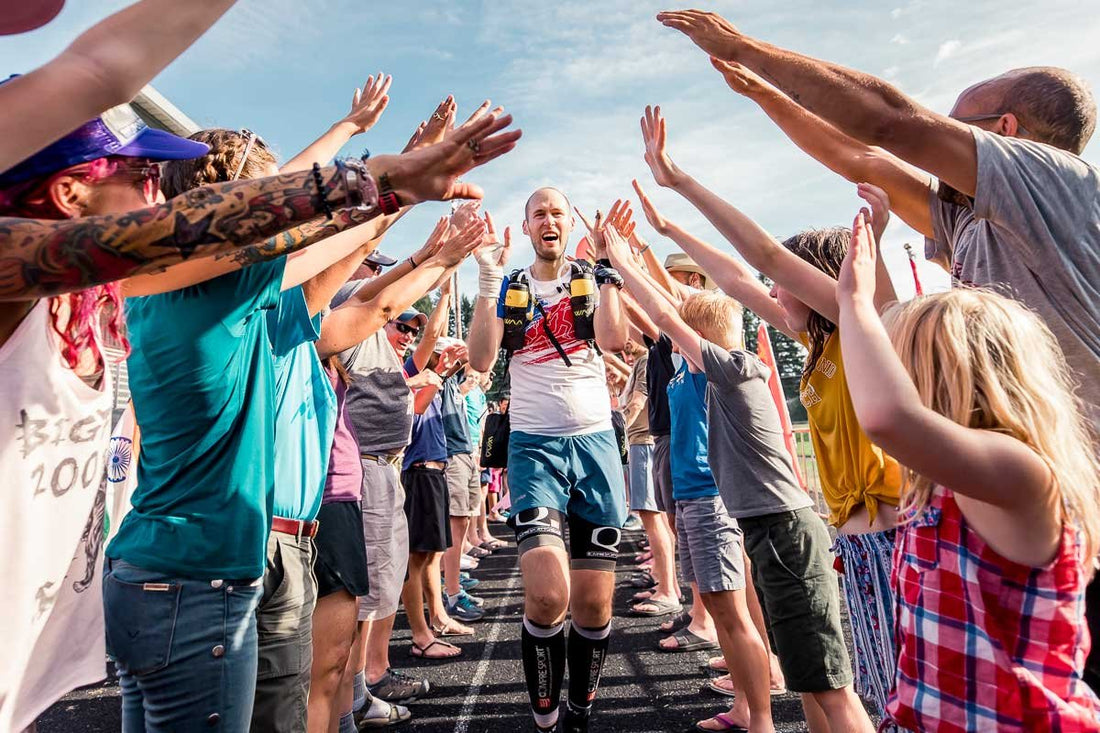
Optimizing Nutrition for the Bigfoot 200 Ultra Marathon (Part 3 of 4)
Share
Nutrition plays a critical role in endurance events like the Bigfoot 200 Ultra Marathon. Proper fueling and hydration can make the difference between finishing strong and not finishing at all. In this blog, we will explore how to prepare your nutrition for the Bigfoot 200.
Developing a Nutrition Plan:
Caloric Intake:
- Energy Needs: Aim to consume 200-300 calories per hour during the race. Use a mix of carbohydrates, proteins, and fats to maintain energy levels.
- Frequent Intake: Eat small amounts frequently to avoid energy dips and gastrointestinal issues.
Hydration:
- Regular Hydration: Plan for regular hydration, consuming water and electrolyte drinks. Adjust your intake based on weather conditions and sweat rate.
- Electrolytes: Include electrolyte tablets or drinks to maintain electrolyte balance and prevent cramps.
Testing Your Nutrition:
Training Runs:
- Trial and Error: Use your long training runs to test different foods, gels, and drinks to see what works best for you.
- Digestibility: Focus on easily digestible options that provide sustained energy.
Variety:
- Flavor Fatigue: Include a variety of foods to avoid flavor fatigue. Mix sweet and savory options to keep your palate interested.
- Nutrient Diversity: Ensure your nutrition plan includes a balance of macronutrients to support overall health and performance.
Race Day Nutrition:
Pre-Race Meal:
- Balanced Meal: Have a balanced meal rich in carbohydrates, moderate in protein, and low in fat 3-4 hours before the race.
- Hydration: Ensure you are well-hydrated before the race starts.
Aid Station Strategy:
- Familiarity: Familiarize yourself with what will be available at aid stations and plan to supplement with your own supplies.
- Drop Bags: Use drop bags strategically to access your preferred nutrition and gear.
Post-Race Recovery:
Immediate Nutrition:
- Recovery Foods: Consume a mix of protein and carbohydrates within 30 minutes of finishing to start the recovery process.
- Hydration: Continue to hydrate post-race to aid in recovery and replenish lost fluids.
Ongoing Nutrition:
- Balanced Diet: Maintain a balanced diet in the days following the race to support recovery.
- Anti-Inflammatory Foods: Include anti-inflammatory foods like berries, nuts, and leafy greens to reduce muscle soreness and promote healing.
Proper nutrition is essential for a successful Bigfoot 200 Ultra Marathon experience. By developing a comprehensive nutrition plan, testing your strategies, and focusing on recovery, you'll be well-prepared to fuel your journey through this challenging race. Thank you for following our series on preparing for the Bigfoot 200. Best of luck in your training and on race day!







